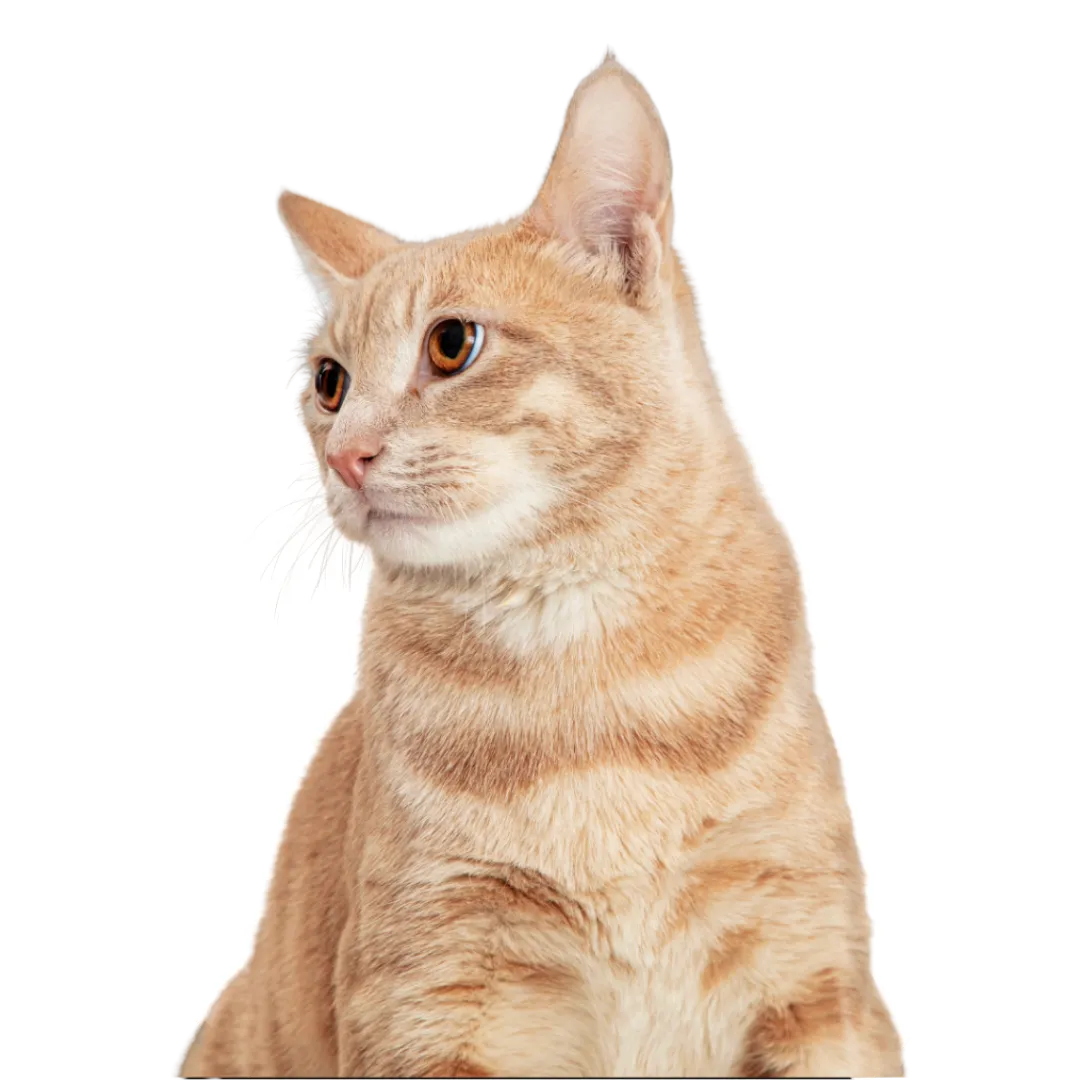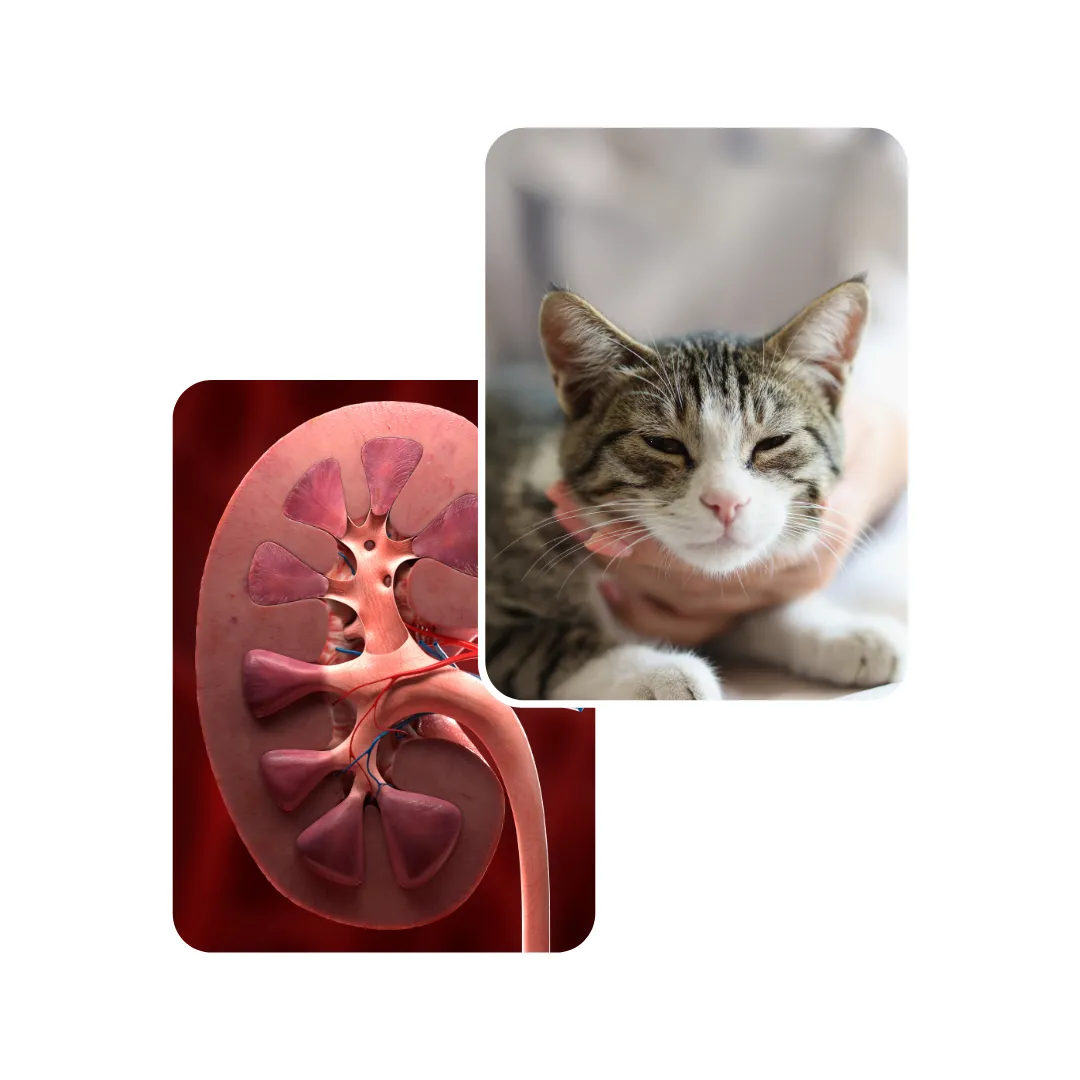
Cat kidney issues can result from several factors. Acute kidney problems often come from toxins (like lilies or antifreeze), urinary blockages, or severe infections. Chronic kidney disease usually develops slowly with age as the kidneys lose function. Other causes include high blood pressure, cancer or genetic conditions such as polycystic kidney disease in Persians. Poor diet and dehydration may also make the condition worse.

Kidney disease often shows slowly, but clear signs include:
Cats may drink water frequently and produce large amounts of urine as the kidneys fail to concentrate urine properly.
The buildup of toxins in the blood can cause frequent vomiting, drooling or lip-smacking.
Kidney problems make cats feel tired, weak and less active. They may sleep more and play less.
In advanced cases, ulcers may appear on the tongue or gums, causing pain when eating.
A cat kidney problem often makes cats lose interest in food. Over time, they become thinner and weaker.
Cats with kidney disease may develop a strong ammonia-like smell on their breath due to toxin buildup.
Despite drinking more water, cats can still be dehydrated. You may notice sunken eyes, dry gums or skin that doesn’t spring back quickly when gently lifted.
Severe kidney failure can lead to neurological symptoms due to high toxin levels in the blood.
Kidney problems happen when the kidneys cannot filter waste properly, leading to toxin buildup in the blood.
Yes, especially in older cats. Chronic kidney disease is one of the leading illnesses in senior cats.
They may result from toxins, infections, blockages, genetic conditions or simply aging.
Drinking more water, peeing more often and gradual weight loss are early warning signs.
With proper treatment and diet, many cats live for years after diagnosis, especially with early detection.
Click the Appointment button or call us directly. Early treatment makes a big difference in outcome.
Your pet deserves expert care – Subscribe now for trusted tips and updates from our pet experts.
